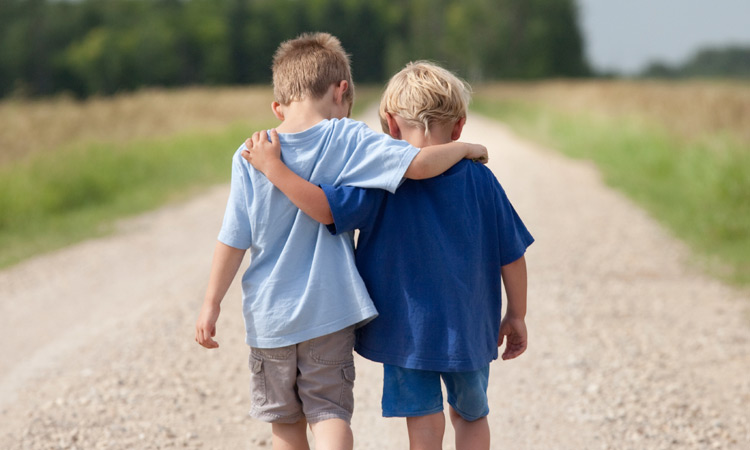Empathy: Why We Need It
Life is a gift. Life is an adventure. Life is also hard. We’ve all had tough times and the honest truth is there will more than likely be more to come. At times like these we want our loved ones to be there for us. Showing empathy to a friend or family member is a practice we can all tune into, to connect better with each other and even to help ourselves to stop being our own worst critic.
What is empathy? Empathy is the ability to understand and share the feelings of another. It’s what truly connects us as humans. As Brené Brown, a research professor at the University of Houston Graduate College of Social Work says, “Rarely can a response make something better, what makes something better is connection.”
What is the difference between it and sympathy? Sympathy is a feeling of pity for another person’s misfortune. But who wants to be pitied? Sometimes it can feel like a person is looking down on us in a judgmental way, so the connection between two people is not as strong. Brown goes on to say, “Sympathy drives disconnection.”
Brown recently had a hit with her short animated film Brené Brown on Empathy. In it she discusses the differences between empathy and sympathy. Her words also act as narration for the short film.
At the start of the film a small female fox is standing in a woods. She has a dark cloud over her head and it’s raining. A bear walks up to her and waves “Hi.” A speech bubble comes out of the fox’s mouth. In it there’s an unhappy face. The bear reaches up, takes the speech bubble in his hands and folds it into his pocket. It’s a really nice illustration of someone being able to take and understand another person’s perspective. An important aspect of empathy.
But why do we need to practice empathy? Showing empathy offers non-judgmental support. While a sympathetic response can sometimes feel patronizing or judgment loaded, an empathetic one helps us feel accepted despite the tough situation, understood and not alone. Just knowing that there is no magic spell that can make things better – and having another person get this – is beneficial. We can be honest and know we are not being judged or brushed aside, as if our problems are not big enough. Our feelings are important and having someone understand and feel with us helps the healing process, just as Brown highlights so well.
It’s an important life skill to be able to empathize with others and put ourselves in their shoes. If we felt this way, who would we turn to?
The human touch can be very powerful. A hug or linking hands is sometimes the best empathetic response to a terrible scenario. This physical action is powerful and no words are needed, a connection is instantly felt between both people. Tahereh Mafi says in her book, Shatter Me “All I ever wanted was to reach out and touch another human being not just with my hands but with my heart.”
Knowing that someone is there to listen also makes a difference. Simply listening to problems and letting people know we are available enables a higher level of connectedness. Often knowing that even if we can’t change things, we have support and someone to listen, helps ease the pain. Ernest Hemingway said, “When people talk, listen completely. Most people never listen.” Maybe this is the true key to empathy.
To find out about Rose’s thoughts on how to live a happier life, click here
Post Disclaimer
This content is for informational purposes only and does not constitute medical advice. Please consult a healthcare professional for any medical concerns.


